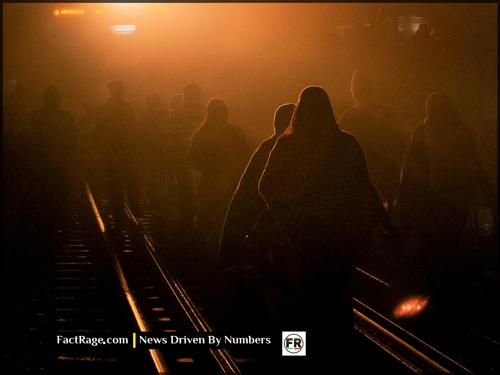MIAMI, FL – A federal judge has issued a preliminary injunction blocking the state of Florida from enforcing a controversial provision of a new law that makes it a felony to transport undocumented immigrants into the state.
- Injunction Issued – U.S. District Judge K. Michael Moore granted a preliminary injunction against Section 10 of Florida Senate Bill 1718.
- Federal Authority Cited – The judge’s ruling found the law is likely unconstitutional because it intrudes on the federal government’s exclusive authority to regulate immigration, a concept known as preemption.
- Immediate Policy Impact – Florida law enforcement is now barred from arresting or prosecuting individuals under this specific section of the law while the legal challenge proceeds.
The decision marks a significant legal setback for the state’s aggressive immigration agenda and thrusts the long-standing debate over states’ rights versus federal power into the national spotlight. The core of the issue is a fundamental constitutional question: who gets to make and enforce immigration law?
Beyond the Headlines: The Constitutional Test Case
![]() When a state law and federal authority collide, the political theater often overshadows the core legal mechanics at play. The recent injunction against Florida’s SB 1718 is a classic example. This isn’t just another political skirmish; it’s a fundamental stress test of the U.S. Constitution’s Supremacy Clause and the long-settled doctrine of federal preemption in immigration law. Understanding this case requires looking past the rhetoric to see the underlying gears of governance in motion.
When a state law and federal authority collide, the political theater often overshadows the core legal mechanics at play. The recent injunction against Florida’s SB 1718 is a classic example. This isn’t just another political skirmish; it’s a fundamental stress test of the U.S. Constitution’s Supremacy Clause and the long-settled doctrine of federal preemption in immigration law. Understanding this case requires looking past the rhetoric to see the underlying gears of governance in motion.
Read On…
Here’s the breakdown of the judge’s precise legal reasoning, the specific part of the law now on hold, and the procedural next steps in this nationally significant power struggle.
What Part of SB 1718 Did the Court Block?

The focus of the court’s order is Section 10 of Florida’s Senate Bill 1718, one of the law’s most debated components. This provision made it a third-degree felony to “knowingly and willfully” transport an individual into Florida who has “entered the United States in violation of law and has not been inspected by the federal government since the person’s unlawful entry.”
Civil rights groups and the Farmworker Association of Florida, who brought the lawsuit, argued the law was unconstitutionally vague. They claimed it could criminalize the everyday activities of residents, such as a U.S. citizen driving a relative or co-worker to a doctor’s appointment or church, if that passenger’s immigration status was unclear. The potential penalty included up to five years in prison for a first offense. The injunction specifically halts the state from enforcing this felony charge.
Why the Judge Sided with Federal Authority Over State Law
In his ruling, Judge Moore pointed directly to the Supremacy Clause of the U.S. Constitution, which establishes that federal laws generally take precedence over state laws. Immigration regulation has historically and legally been the domain of the federal government.
The judge concluded that the plaintiffs were likely to succeed on their argument that SB 1718 is preempted by federal law. The ruling stated that by creating a new state-level felony for immigration-related transport, Florida was effectively creating its own immigration scheme, which interferes with the comprehensive framework established by Congress. Judge Moore noted that allowing states to enact jejich own patchwork of immigration laws would create chaos and undermine a uniform national policy. He wrote that the law “extends beyond the state’s authority to make arrests for violations of federal immigration law and, in doing so, intrudes into territory that is preempted.”
What Happens Next in the Battle Over Florida’s Immigration Powers?
This injunction is not a final ruling on the law’s constitutionality but a temporary measure that prevents its enforcement while the full case is litigated. The state of Florida, under Governor Ron DeSantis’s administration, is expected to appeal the decision to the 11th U.S. Circuit Court of Appeals.
The legal battle over SB 1718 is being closely watched across the country. Other states have considered or passed similar legislation, prompting a series of court challenges that test the limits of state power. The outcome of Florida’s case could set a significant precedent, either emboldening states to pursue their own immigration enforcement measures or reinforcing the federal government’s exclusive control over the issue. For now, the enforcement of a key pillar of Florida’s immigration crackdown remains on hold.
The Federalism Test Case
![]() This ruling is more than just a legal setback for one state’s policy; it’s a critical test case in the enduring constitutional debate over federalism. The central question—where federal authority ends and state power begins on immigration—is now being litigated with national consequences. As this case proceeds, its outcome will provide a crucial data point, shaping the legal and political landscape for other states attempting to craft their own immigration enforcement regimes. Ultimately, this battle over process and jurisdiction will define the rules of governance long after the political rhetoric of the moment has faded.
This ruling is more than just a legal setback for one state’s policy; it’s a critical test case in the enduring constitutional debate over federalism. The central question—where federal authority ends and state power begins on immigration—is now being litigated with national consequences. As this case proceeds, its outcome will provide a crucial data point, shaping the legal and political landscape for other states attempting to craft their own immigration enforcement regimes. Ultimately, this battle over process and jurisdiction will define the rules of governance long after the political rhetoric of the moment has faded.













